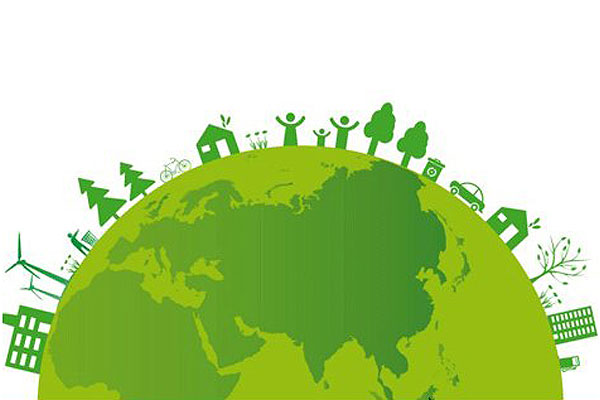More and more it becomes clearer that sustainability in tourism is not just about the environment as it has been thought .It also concerns old issues such as economic, public health and protection, as well as and new concept such as the positive impact on the labor market (as it increases the employment prospects of the local population) and the carrying capacity of the specific tourism destination were furtherly developed.
1. Introduction
In the following series of articles, the interrelationship of concepts of tourism that will be studied and presented by literature review are the following: tourism sustainability, education and sus-tainability, technologies and local communities. In each article, one of the previous would be the topic. The topic of the current article is the sustainability in tourism.
2.Literature review on sustainability in tourism
According to the World Tourism Organization, sustainable tourism is the tourism that: a. takes into account its current and future economic, social and environmental impacts and meets the needs of community visitors to the host destinations, and b. make a positive impact on the envi-ronment, society, and economy (Read, 2018).
More and more it becomes clearer that sustainability in tourism is not just about the environment as it has been thought .It also concerns old issues such as economic, public health and protection, as well as and new concept such as the positive impact on the labor market (as it increases the employment prospects of the local population) and the carrying capacity of the specific tourism destination were furtherly developed.
Sustainability concept has relatively recently come in the center of the tourism industry, of tour-ism education and more generally of the tourist approach to both destinations and models. Sus-tainable tourism destinations are now being promoted as more ethical choices for tourists, while sustainable tourism development is considered the key for tourism professionals and local com-munities to be able to sustain their businesses (Espiner, Orchiston and Higham, 2017).
These businesses can be in the field of hospitality, catering, in the field of ticketing or transport. Under this perspective, many indicators have been put in place to monitor this relationship, such as increased profitability with improved environmental outcomes and benefits for society.
Sustainability in tourism is about the socio-economic and environmental impact of tourism devel-opment. The dominating model until few decades ago was that the world is moving relatively linearly, so everything is predictable to a large extent. This idea was abandoned when the local ecosystems and their dynamics where deeper investigated, taking into consideration their com-plexity and their interrelation with the global environmental risks and natural disasters that oc-curred. Climate change has changed what we traditionally considered to be sustainability and laid the foundations for more specific space and time related approaches, where generalizations have no place. It is now widely accepted that climate change poses a risk from the local to the global level where everybody now recognizes the danger for biodiversity and the environment in general (Espiner, Orchiston and Higham, 2017).
In these particular topics of resilience and sustainability of tourist destinations, scholars propose some general indicators of successful resilience: planning, culture, collaboration and innovation. There is, of course, evidence from the literature that the most famous destinations are those with higher levels of resilience. Although resilience is necessary, it is not enough to characterize a tour-ism destination as sustainable. Sustainability is considered as a system's ability to move forward and consume resources without undermining the ability of future generations to enjoy their own resources (Mensah, 2019). Resilience focuses primarily on changing ecosystems and adapting them by investing in their capacity (Southwick et al., 2014).
It should be emphasized here that sustainability has three aspects: economic, social and environ-mental. On the contrary, resilience does not have such clear boundaries or pillars and is mainly characterized by the ability of the ecosystem to move forward. It is a fact, according to experts, that sustainable tourism is strongly linked to the culture of local ecosystems that become tourist destinations. The entrepreneur who promotes sustainable tourism also plays a big role here (Mon-tella, 2017).
References
- Read, J. (2018, April 25). What Is the Meaning of Sustainable Tourism? Retrieved from https://traveltips.usatoday.com/meaning-sustainable-tourism-2297.htmlRiensche, M. et al. (2019) "Private over Public Interests in Regional Tourism Governance: A Case Study in Costalegre, Mexico", Sustainability, 11(6), p. 1760. doi: 10.3390/su11061760.
- Espiner, S., Orchiston, C. and Higham, J. (2017) "Resilience and sustainability: a complementary relationship? Towards a practical conceptual model for the sustainability–resilience nexus in tour-ism", Journal of Sustainable Tourism, 25(10), pp. 1385-1400. doi: 10.1080/09669582.2017.1281929.
- Mensah, J. (2019) "Sustainable development: Meaning, history, principles, pillars, and implica-tions for human action: Literature review", Cogent Social Sciences, 5(1). doi: 10.1080/23311886.2019.1653531.
- Southwick, S. et al. (2014) "Resilience definitions, theory, and challenges: interdisciplinary per-spectives", European Journal of Psychotraumatology, 5(1), p. 25338. doi: 10.3402/ejpt.v5.25338.
- Montella, M. (2017) "Wine Tourism and Sustainability: A Review", Sustainability, 9(1), p. 113. doi: 10.3390/su9010113.
Konstantinos Tsagkarakis holds a master degree in Tourism policy from the University of the Aegean (Chios, Greece) as well as a master degree in the science of geography and spatial management from the Charokopion University. He also holds a degree in pedagogies (Higher School of Pedagogic and Education, Athens, Greece). He works as an educator in vocational training institutes and he teaches in the travel agency department, and in technical tertiary education (Technological Educational Institute of Lamia, Greece) in which he teaches in the departments of Tourism Industry as well as the department of Commerce and Advertising. Moreover, he teaches in the English-speaking section of the department of the Technological Educational Institute of Piraeus, which is meant for exchange students (exchange programmes: Erasmus and Mundus). Currently he is a vocational educator in Tourism Industry departments of both private and public Vocational Training Institutes (in Greek: IEK) and Vocational Training Centres (in Greek: KEK). Apart from being an educator, he has experience in business consulting: he had supported in the participation of local administration businesses in trans-regional EU funded programmes in the frame of the European Union Initiative INTERREG IIIC. Finally, he has experience in consulting private businesses.









































































































































































